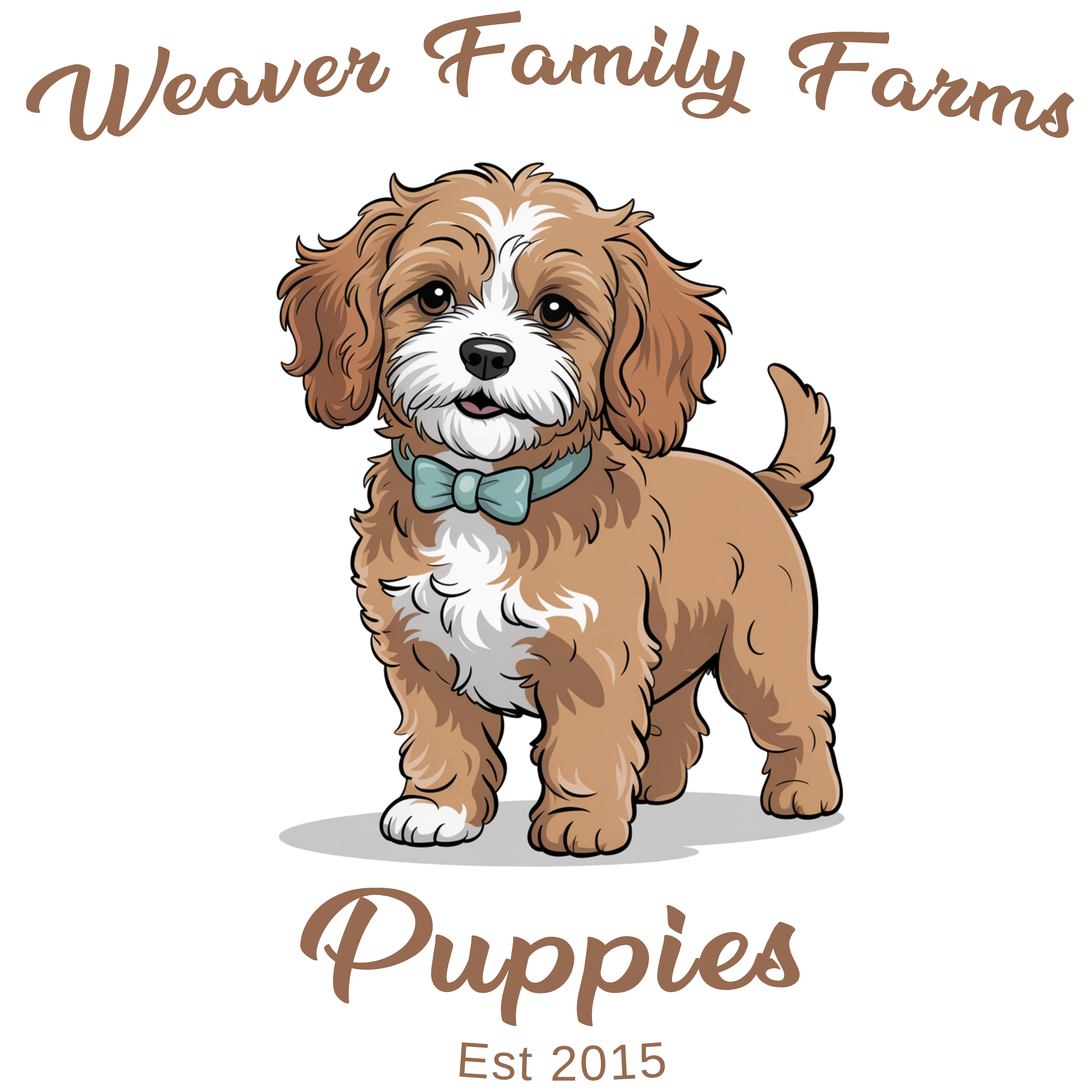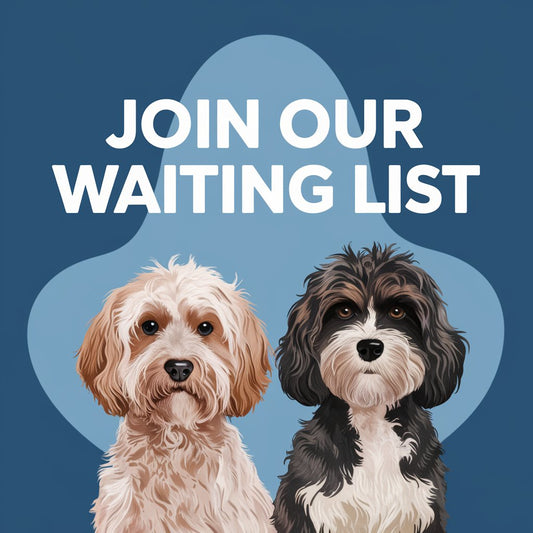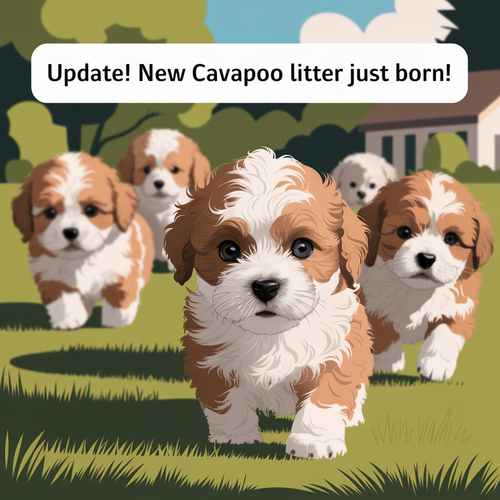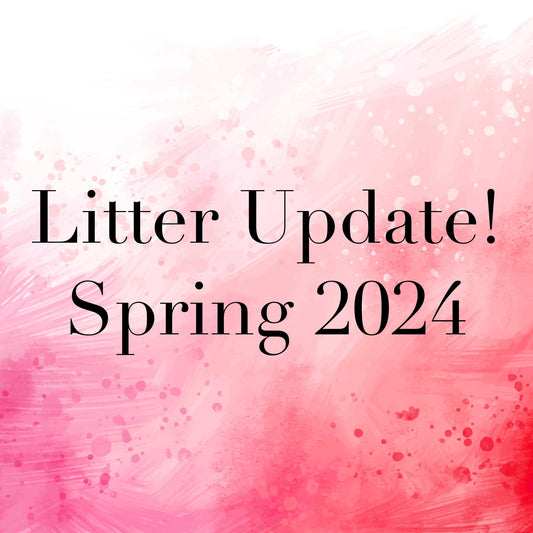
What is a Cockapoo Puppy Like?
Cockapoo puppies are known for their affectionate and playful nature, making them excellent family pets. They typically inherit the best traits from both parent breeds, including the intelligence and low-shedding coat of the Poodle and the loving temperament of the Cocker Spaniel. These puppies are highly social and thrive on human interaction, which makes early socialization and training crucial.
Cockapoos are quick learners due to their intelligence, but their sensitive nature means they respond best to positive reinforcement. Harsh training methods can lead to anxiety and behavioral issues, so it's important to use gentle techniques that build trust and confidence. If you’re considering adding a Cockapoo to your family, you can learn more about their characteristics in our detailed guide: Cockapoo Puppies: Your Guide to the Perfect Family Pet.
How to Start Training a Cockapoo Puppy?
Training a Cockapoo puppy should begin as soon as you bring them home. Early training helps to establish good habits and prevent unwanted behaviors from developing. Here's how to get started:
- Set Realistic Expectations: Understand that puppies have short attention spans and may take time to grasp new commands. Patience is key.
- Create a Routine: Establish a consistent schedule for feeding, potty breaks, playtime, and training sessions. Puppies thrive on routine and predictability.
- Start with Basic Commands: Begin with simple commands like "sit," "stay," and "come." Use positive reinforcement such as treats and praise to encourage good behavior.
The initial training phase is about building a foundation of trust and communication between you and your puppy. Consistency and gentle guidance are essential during this period.

What are the Best Training Techniques for Cockapoo Puppies?
Cockapoos respond exceptionally well to positive reinforcement training methods. This technique focuses on rewarding desired behaviors, making training a fun and positive experience for your puppy. Here are some effective training techniques:
- Positive Reinforcement: Reward your puppy with treats, praise, or playtime whenever they follow a command correctly. This reinforces the behavior you want to see.
- Clicker Training: This method involves using a clicker to mark the exact moment your puppy performs a desired behavior, followed by a reward. It helps to create a clear association between the behavior and the reward.
Using positive reinforcement and clicker training can make the training process enjoyable for both you and your puppy. It encourages your Cockapoo to learn and perform commands eagerly, knowing they will be rewarded for their efforts. For more insights on training techniques, check out our Puppy Adoption Questions.
House Training Your Cockapoo Puppy
House training is one of the first challenges new puppy owners face. Fortunately, Cockapoos are generally quick learners, making the process smoother. Here are some tips for successful house training:
- Establish a Routine: Take your puppy outside frequently, especially after meals, naps, and playtime. Consistency helps your puppy understand when and where they should relieve themselves.
- Choose a Designated Spot: Always take your puppy to the same spot in your yard. The familiar scent will remind them of what they are supposed to do.
- Use Positive Reinforcement: Praise and reward your puppy immediately after they go potty outside. This helps them associate the behavior with positive outcomes.
- Crate Training: Crate training can be an effective tool for house training. Make sure the crate is appropriately sized—not too big, so the puppy doesn’t feel comfortable soiling one end and sleeping in the other. Puppies are naturally clean animals and will avoid soiling their sleeping area.
Consistency and patience are key to house training success. Expect accidents in the beginning and use them as learning opportunities rather than moments of frustration.
How to Teach Basic Commands to Your Cockapoo Puppy?
Teaching basic commands is essential for your Cockapoo’s safety and your peace of mind. Here’s a step-by-step guide to teaching some foundational commands:
Sit:Hold a treat close to your puppy’s nose.
Move your hand up, allowing their head to follow the treat, which will cause their bottom to lower.
Once in a sitting position, say "sit," give them the treat, and offer praise.
Stay:
Ask your puppy to sit.
Open your palm in front of you and say "stay."
Take a few steps back. If they stay, return and reward them with a treat.
Gradually increase the distance and duration of the stay command.
Come:
Put a leash on your puppy and gently pull them towards you while saying "come."
When they reach you, reward them with treats and praise.
Practice this in different environments to strengthen the command.
Down:
Hold a treat in your hand and move it to the ground.
Encourage your puppy to follow the treat into a lying-down position.
Once down, say "down," give them the treat, and offer praise.
The key to teaching these commands is consistency and repetition. Keep training sessions short and fun, ending on a positive note to keep your puppy engaged and eager to learn.
Socializing Your Cockapoo Puppy
Socialization is crucial for ensuring your Cockapoo puppy grows into a well-rounded, confident adult dog. Proper socialization involves exposing your puppy to a variety of people, environments, sounds, and other animals in a controlled and positive manner. Here’s how to effectively socialize your Cockapoo:
- Start Early: Begin socialization as soon as your puppy arrives home. The critical period for socialization is between 3 and 14 weeks of age.
- Introduce New Experiences Gradually: Introduce your puppy to different environments, such as parks, busy streets, and friend’s houses. Ensure each experience is positive by offering treats and praise.
- Meet Different People and Animals: Expose your puppy to people of all ages, sizes, and ethnicities, as well as other vaccinated, friendly dogs. This helps prevent fear and aggression towards strangers and other animals.
- Use Positive Reinforcement: Reward your puppy for calm and positive behavior during new experiences. This helps them associate new situations with positive outcomes.
- Puppy Classes: Enroll in puppy socialization classes where your puppy can interact with other dogs in a safe and controlled environment.
Socialization helps your Cockapoo become more adaptable and less fearful, reducing the likelihood of behavioral problems later in life.
What Common Challenges Might You Face When Training a Cockapoo Puppy?
Training any puppy can come with challenges, and Cockapoos are no exception. Here are some common issues you might encounter and tips for addressing them:
-
Barking: Cockapoos can be vocal, especially when they’re bored or seeking attention.
- Solution: Provide plenty of mental and physical stimulation through play, training, and interactive toys. Ignore attention-seeking barking and reward quiet behavior.
-
Chewing: Puppies explore the world with their mouths, which can lead to destructive chewing.
- Solution: Provide plenty of chew toys and redirect your puppy to these whenever they start chewing on inappropriate objects. Keep valuable items out of reach.
-
Separation Anxiety: Cockapoos are social dogs and can develop separation anxiety if left alone for long periods.
- Solution: Gradually increase the time your puppy spends alone, starting with short periods and gradually extending them. Use positive reinforcement to reward calm behavior when alone.
-
House Training Accidents: Even with the best efforts, accidents will happen.
- Solution: Clean up accidents thoroughly to remove all traces of odor and prevent repeat incidents. Maintain a consistent routine for potty breaks and watch for signs your puppy needs to go out.
Each puppy is unique, and some challenges may require patience and consistency to overcome. If you find yourself struggling, don’t hesitate to seek advice from professional trainers or reach out to us for support.
How to Maintain Your Cockapoo Puppy’s Training
Training doesn’t end once your Cockapoo puppy masters the basics. Maintaining and reinforcing their training is essential for long-term success. Here’s how to keep your puppy’s training on track:
- Consistent Practice: Regularly practice commands and behaviors to keep them fresh in your puppy’s mind. Short, frequent sessions are more effective than long, infrequent ones.
- Incorporate Training into Daily Routine: Use everyday situations as training opportunities. For example, ask your puppy to sit before feeding them or make them wait at the door before going for a walk.
- Positive Reinforcement: Continue to reward good behavior with treats, praise, or playtime. This helps reinforce the training and encourages your puppy to repeat desired behaviors.
- Gradual Increase in Difficulty: As your puppy becomes more proficient, increase the difficulty of training exercises. Introduce distractions, practice in different environments, and extend the duration of commands like “stay.”
- Socialization Continuation: Keep exposing your puppy to new people, animals, and environments. This helps prevent fear and anxiety as they grow older.
By integrating training into your daily interactions and maintaining a positive and consistent approach, your Cockapoo will remain well-behaved and happy.
Additional Resources for Cockapoo Puppy Owners
As a Cockapoo owner, having access to reliable resources can be incredibly helpful. Here are some recommended resources to enhance your knowledge and support your puppy’s development:
-
Books and Guides: There are many excellent books on dog training and Cockapoo care. Some recommended titles include:
- “The Art of Raising a Puppy” by The Monks of New Skete
- “Puppy Training for Kids” by Colleen Pelar
- “The Cockapoo Handbook” by David Anderson - This book we are actually mentioned inside of the book! You need to check this one out for sure!

- Online Videos and Tutorials: Platforms like YouTube offer a wealth of training tutorials and advice from professional trainers. Look for channels that use positive reinforcement techniques.
- Puppy Training Classes: Enroll in local puppy training classes for hands-on guidance and socialization opportunities. Many trainers offer both in-person and online options.
-
Veterinary Advice: Your veterinarian can provide valuable advice on health, behavior, and training specific to your Cockapoo. Regular check-ups ensure your puppy’s well-being and address any concerns early.
-
Blogs and Websites: Trusted websites and blogs can offer ongoing tips and insights. Our blog features articles on Cockapoo care and training that you might find useful. For more detailed guidance, visit our article on Why Buy a Cockapoo Puppy?.
Utilizing these resources will provide you with comprehensive support, ensuring your Cockapoo puppy grows into a well-adjusted and happy adult dog.
For more information on finding the perfect Cockapoo puppy, check out our listings:
Contact Us for More Information
We understand that adopting a puppy is a significant decision, and we are here to help you every step of the way. If you have any questions or need further assistance, please don’t hesitate to reach out to us. Our dedicated team is ready to provide you with the information and support you need to ensure a smooth adoption process.
You can contact us through our Contact Us page, where you’ll find all the necessary details to get in touch. Whether you have questions about training, care, or available puppies, we’re here to help.















